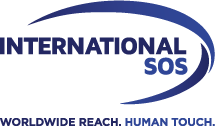Preparing for pandemics
Published: April 2016
ARE YOU PREPARED?
Worldwide disease outbreaks - or pandemics - are an ever present danger. Influenza can strike at any time. As well as causing illness and even death, pandemics can cause major disruption to businesses. International SOS has a number of specialists dedicated to alerting clients to such risks. And helping them prepare.

SPECIALIST KNOWLEDGE
When a new virus emerges, there is often a lot that is unknown about it. As the scientific community studies the situation, there may be a rapid flurry of new information. The team maintains close links with many experts in emerging infectious diseases, including the virologist Professor John Oxford.
SWINE-FLU
‘Swine flu (H1N1)’ was the first pandemic of the 21st Century. It started in 2009 near a pig farm in Mexico and spread to villages, towns and cities, and ultimately across the world. Like other pandemic viruses it was able to spread quickly between humans. This was facilitated by the large travelling population. As Dr Dyer points out, “It’s shocking how quickly and how far it spread. We kept a very close eye on it.” Eventually a vaccine was created.
The team is keeping a close watch on other potential pandemic threats, such as bird flu H5N1 and H7N9. Bird flu usually infect birds. Humans in close contact with infected birds, such as poultry farmers, can get infected. A significant number of them develop a severe illness which can be fatal. Occasionally bird flu does spread from one person to another. However, if the virus adapts to spread more easily between people, a pandemic is possible.
MERS - COV
Another disease firmly on our radar is Middle East Respiratory Syndrome Coronavirus (MERS - CoV). This new disease first appeared in 2012 in the Middle East. People are probably infected from exposure to camels however infected people can pass the virus to other people, and explosive outbreaks can occur, particularly in hospitals. Travellers risk spreading the disease to new areas. A single traveller triggered a large outbreak of over 150 cases in South Korea.
INFORMATION AND EDUCATION
“Advising travellers and managers about these diseases, including how to prepare, prevent and respond, is a key task”, according to Dr Dyer. Following the SARS outbreak, in response to the evolving landscape, a pandemic preparedness service was launched in 2005. Since then we have continued to enhance the
information, tools and advice we provide.
In July last year, this culminated in the launch of our refreshed dedicated website. As Dr Dyer explains, “We totally revamped and re-launched the website to bring it up-to-date. We wanted to take advantage of the latest technological developments and find better ways of presenting information.” The site explains the background to pandemics and particularly focuses on current ‘active threats’.
There are also newly designed pandemic eLearning courses available for members and managers. The modules provide practical advice and information on how to keep safe and prepare for a potential pandemic. Our clients can access these courses via the International SOS Training Hub.
BEING PREPARED
There are different levels of access to the pandemic information. The public can gain a general overview of pandemics. International SOS members have more detailed advice on individual diseases as well as access to travel advice. Pandemic information subscribers can go even deeper. They can access the latest pandemic news as well as extensive background and scientific information on pandemic planning. They also have access to country-by-country situation assessments, planning tools, and educational materials to share with their employees.
Pandemic information subscribers also receive email updates and have access to regular webinars.
All this knowledge forms vital background information for the development of pandemic preparedness plans. Many of our clients are now using these crucial tools to help them mitigate their risks.
A RECOGNISED AUTHORITY
The website has been very well received. Our interactive map is particularly popular. Users can check the locations where they have operations to see the latest news on active threats.
Although information about diseases can be found elsewhere, International SOS is recognised as an authority. From the early days of the Ebola outbreak in West Africa, many international agencies relied on our website as the first port of call, and many continue to use it on a daily basis.
As Dr Dyer points out, “When there are evolving situations with a multitude of sometimes conflicting information, we can filter through it, using our people on the ground and contacts in many agencies to provide our members with reliable information that is comprehensive, up-to-date and actionable.”










